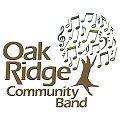Leaderboard
Popular Content
Showing content with the highest reputation on 10/08/2010 in all areas
-
Sort of. I'm probably quite biased because I was never told what the hell is the point, and I found no use for it whatsoever yet I was graded and had to jump through the hoops anyway. I hate that sort of thing, I want to know WHY I'm doing things, not just do them out of obligation. Funny that this is the only part of all my studies that I feel that way, but maybe if had a better teacher, yet everyone just turns up the same excuses that don't sell me the thing at all. I don't think you can HURT someone's musicianship by getting them to do whatever ear training exercises. I think it's just a matter that I for one would like tangible proof that doing 3 voice dictation is worth my time and I haven't seen any, and all I hear is that it might help but it's always so vague and so far in my experience it hasn't. It's just made me angry. I'm not -against- any sort of ear training, my problem is with a curriculum that requires you to pick out which note is missing from a 12 note cluster. Seriously. Or being able to transcribe four part chorals by ear? Who the in the name of Jesus H. Christ needs a skill like this? I certainly don't! It's like if I was required to, I don't know, become really skilled at snowboarding. What the gently caress is the point, again? Unless you like snowboard, yeah, but I don't see the connection and it's a really hard thing to train!2 points
-
Hi, I was wondering if anyone out there could tell me the absolute maximum length of time (in seconds) that a violinist, violist, cellist, and double bass-ist, can hold out a note for. I'm also wondering how dynamics affect how long a note can be held for. My main concern is with the viola and the cello, but it would be nice to know for all four, just for future reference. --Thanks!1 point
-
It'd be nice to know for both, but i'm talking the absolute maximum that maybe a college level violist/cellist/etc. can hole a single tone for, and whether dynamics play a role.1 point
-
1 point
-
Yes this was pretty serious indeed. I agree with the percussive strings john pointed out. I liked the sea sounds in the beginning. It felt to me that the 'heartbeat' sounds at 1:30-1:50 didnt really nailthe beat there. I don't know what it was. Another thing: I would suggest tuning down the level on those two chords at the end of the piece. They stood out a bit too much for my taste. Overall well done!1 point
-
Really, I would ask composers. Not people involved in education unless they're only involved in teaching composition, not "general theory." But whatever, the point is people who are good at it are going to recommend it because it's also silly to think they'll admit they wasted all that time on a skill that isn't so useful. Instead they'll probably champion it harder, regardless of what they may really think. That said however, the guy's opinion is that it can help. Also we're never talking about what KIND of ear training, as I mentioned previously I'm against specific things like dictation and recognizing intervals and in favor of listening and reading music actively, analyzing, etc. Things I think have genuinely help me with composition specifically. In light of that, yeah, but again it's obvious that the more experience you have with music in general the better you'll get at picking up details. Those "glasses" he talked about develop on their own for most part and I don't think some things work as well as others in accelerating it.1 point
-
No description? Ah well, fair enough. Is this meant as 1 song? It works as a couple of different cues mixed together (which I guess it is), but not as a single song (or, maybe, when it accompanies some quickly changing scenes, but I would like to see that first). Sounds great and I like the different moods you set, none were boring.1 point
-
m30-63 are absolutely brilliant! Just kidding I kinda get your idea, but I don't think this is the best way to get it across. You didnt convince me of the scene of someone being worried. I felt the instrumentation was pretty sparse and shallow, because of all the long notes, and the haphazardous way of putting it together. I don't get why you use a dotted-half note tied to a eight note and a rest in the bassoon part. I suppose it is just to get your software produce the correct tone - which shouldn't be your main goal if you don't use high quality sounds. I found the pianopart very boring. Very repetitive, and just the whole notion of repetitive notes in the right hand against very repetitive chords in the left hand (and the rhythm too) I found not done. I am sorry and don't take this personal, but this was not your best work in my opinion. This felt like a draft to an introduction of a bigger piece. By no means did it feel like a stand-alone piece.1 point
-
Made on a whim, but you obviously did want to show this to the rest of us. Why upload something you are not happy with in the first place (as it sounds from your comments)? You can defend your point of view, you cannot attack another person for having a different view :sleep:. So I did like the first part of the song (especially up to 1:00, and the last few seconds of the song). It brought in mind the really really REALLY old black and white mickey mouse cartoons of the 20's/30's (Steamboat Willie!). I envisioned a big wooden spaceship (like this: http://www.youtube.com/watch?v=0QOfEzkIm3s ) with steam coming out of it (like this: http://www.youtube.com/watch?v=REbZO82tkgw ) and the happy captain just doing his thing. After that it became more serious and more 'modern' sounding. I agree the midipiano could have been left out. Maybe even should have. The category: this would be electronic I guess. Film/game music is music that is written with the purpose to be set under a scene. This song is more like electronic programmatic music, that is why I think the Electronic forum would be better.1 point
-
I agree with jawoodruff, I liked it as well. Especially the first theme, which sounds kind of eastern to me - in a way the romantic/beginning of 20th century composers would write that way. It reminded me of Nielsens Aladdin Suite for example ('The Marketplace in Isaphan'). As to orchestration I don't know anything about that so can't comment on it. Well done1 point
-
Pretty eery. It is not really music but more of atmospheric background noises right? I think you did well considering the means you had I liked how the swell so suddenly disappeared at 0:401 point
-
..... With the S. The S is this thing: Read: http://en.wikipedia.org/wiki/Dal_Segno1 point
-
Not to be flippant, but you realize that that's totally unconventional and strange, right? If you really, really don't want to just write the music out, then you're asking for a DS al fine. That's what it's for. What you did is fine for sheet music that you're writing "just because." But you'd get a lot of raised eyebrows from publishers or musicians looking at that music. And I still think simply writing out the 8 bars again is a better option. Good luck. -P1 point
-
If you're bringing back just eight measures, I'd suggest just sticking them on the end. You're not saving that much ink/paper by doing a dal segno al fine (which is what you're asking for: D.S. al fine = jump back to a specified measure with the funky S over it, and stop at the fine). And since you want to change the material anyway, just write it out. :)1 point
-
1 point
-
There's actually a large number of mutes, you've only shown 3 of them. There are types that remain attached to the bridge and others that you just put on. While they are fast to put on, sometimes they have a tendency to detune the stringed instruments upon placement or removal. A lot of score give a short rest for the player to remove or put on the mute. Faster passages, especially.1 point
-
Never say "still" in the negative sense, it connotes inadequacy. Your best bet is probably to tell of your plans, there's no getting around the fact that you're in high school. If you have been accepted, definitely say that you WILL be attending such and such in the fall. But yes, you really should not lie or dance around a direct question when applying for a gig. Say you are a senior at hightschoolname and will attend/plan to attend universityname next fall. And don't say "still." If they want someone with more experience and/or training, there's nothing you can do about that. Your best foot forward in this case is your ambition and your demo; you have demos, yes? I hate to be blunt but they really don't have any reason to hire you if you don't have any demos to show them and they apparently prefer someone older/more experienced. My .02 Good luck.1 point
-
Orchestration books are varied. They all will have the same core information. However, its in the details that most books shine over others. Some of the best ones: Adler: The Study of Orchestration - A great college resource and good for the newbie to orchestration, however, it may be a little overwhelming at first. It tends to be very effective at giving the whole picture of the orchestra and focuses on the important stuff like the strings and the common instruments. It does not go into the finer details, however. Piston: Orchestration - A much more thorough book than the Adler going into the details of fingering and more obscure instruments. Some sections of the Adler are lifted directly from this book too so keep that in mind. Note that this book, while a good read, is much less "textbook-like" than the Adler which is intended for college courses. The Piston is great for raw information so its a must to read. Forsyth: Orchestration - Probably the best text out there that I've read because it fits my style. The style is one for brevity where only mere bars are quoted, or sometimes, just the title of the piece. Forsyth also has a great wit in the writing and will be very honest with the composer. The only real problem with this text is its outdated chapters on the saxophone and some brasses. Note that it takes a very pro-English view and is written in that style. He often references "the Continent" as mainland Europe, more specifically France, to great humor. Sometimes he ridicules his own though, like with Grainger's "Blue-Eyed English" use of "Tenor Fiddle" for Viola. Highly recommended, just be sure to read it in the context of when and where it was written or you may not understand the tone he's trying to get at. Note, though, that even though the work is brief, it has some great historical facts that are often just pushed aside with other texts, and is over 600 pages (in the Dover edition). So it is brief, but only in his examples. He crams a LOT of information into that book, more than Piston or Adler. Some of it might be argued as extraneous, but it is a great thing for the well-rounded composer. Rimsky-Korsakov: Principles of Orchestration - A different and semi-mathematical text based on his own practical experience with the orchestra. Rimsky-Korsakov also uses completely his own examples. What is interesting is his method for doublings. For example, two clarinets plus an oboe sound like this... etc. A good different approach. Berlioz (rev. Strauss): Treatise on Instrumentation - Be sure to get the revised version by Richard Strauss. This is a must because the original version is painfully outdated with all the historical instruments. Otherwise, this book is a very good historical perspective on the orchestra and has a really good chapter on conducting. Gevaert: Traité general d’instrumentation - Haven't read it personally but is a major historical text of the romantic period. Tchaikovsky learned from this text translating it into Russian for the Moscow Conservatory. Widor: Manual of Practical Instrumentation - Comparable to a modern version of the Berlioz. Here nor there. Koechlin: Treatise on Orchestration - In four volumes, one of the largest texts ever written on the subject. I haven't read it myself because its hard to find, but it has a great reputation. It is, in its style, the antithesis to the Forsyth, being very large.1 point
-
Some of my favorite tonal chords are diminshed 7th chords. Just the sound of them alone sends shivers down my spine.1 point
-
If you're into jazzy chords, and who wouldn't be, check out the Mark Levine Jazz Theory Book or Jazz Piano Book are really solid. They're really full harmonies. Peace, Marius! -John1 point
-
Why would anyone want to write for trombone? Seriously, what's wrong with bagpipes?1 point
-
0 points
-
-1 points
-
-1 points
-
I would prefer no reference to categorization, strictly speaking. I'm highlighting the points where it makes no sense to even use "atonality" as a category. Music is a cultural phenomenon, this much is clear. We should have more anthropological/ethno-musicological terminology associated with our discussions of music, in my opinion. This removes the propensity of inequity in the way we discuss and view music. We tend not to run as much of a risk in creating preferential treatment for one style of music over others. So, in the sense that we discuss "tonal" music, we should be referring more specifically to Western Classicism. When we discuss "atonal" music, I prefer to think of it as music that is "Post-Classicism" or literally "after Classicism." The sense that these styles are different has much more to do with social, philosophical, and/or aesthetic differences within culture, not the mechanical differences in the styles. To say you've written "an atonal piece" is to say you've formed an appreciation for the philosophical, cultural, and/or aesthetic values of the Post-Classical styles of music emerging in the 20th Century, an appreciation that likely influenced your decision-making process in composing the work. Similarly, an appreciation of Western Classicism of the 16th to 19th Centuries will also share the common trait of influencing your decision-making process in composing music. Any and all styles are simply emergent systems of a musical vocabulary and syntax that incorporates a broad gamut of other influences. We can be more specific in identifying "what" from Classicism influences our music, "what" from Post-Classicism influences our music, etc. This is a much more equitable and specific way of understanding music that doesn't require us to "take sides" as though we're vying for some kind of "fan-based" popularity when we think about music. There's no reason for making mechanical, objective distinctions among styles when those observations exclude the social, philosophical, and aesthetic fundamentals on which such decisions are made. I think the confusion here on whether or not your piece is "atonal" is based on a misunderstanding of aesthetics. Remember that while I think the Semantics are useless, accuracy is important. We just have to get past our misconceptions that emerge from an insufficient context and form a higher understanding based on practical application. You hear "atonal" and "tonal" thrown around in theoretical discourse, and you connect the terminology to the "mechanics" of the style being referenced instead of the "social, philosophical, and aesthetic" concepts that influence the style. Therefore, you're fundamentally misinformed by A) insufficient use of terminology, B) an improper context, and C) perpetual inconsistencies that emerge from insufficient terminology and context. I have issues with the presentation of SSC's statement, but I see no sense in baiting a response from him on whether or not "tonal center" exists. This is an aesthetic issue where interpretations upon hearing music are as diverse as the opinions of the people listening. Everyone is entitled to their own view. Take some time to review Schoenberg's Harmonielehre where he specifically advocates for the advancement of music by eliminating the barriers imposed on creativity by the functional mindset of harmony in Western Classicism. That's a good place to start, at least. You should find Schoenberg to be articulate and well-spoken on the subject, even if one might disagree with his views on the matter.-1 points
-
-1 points






